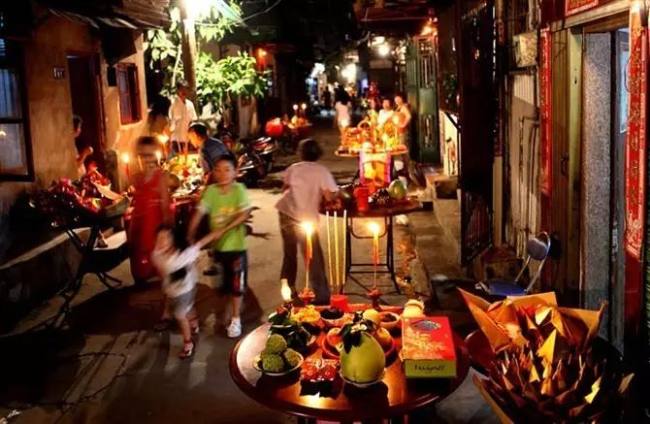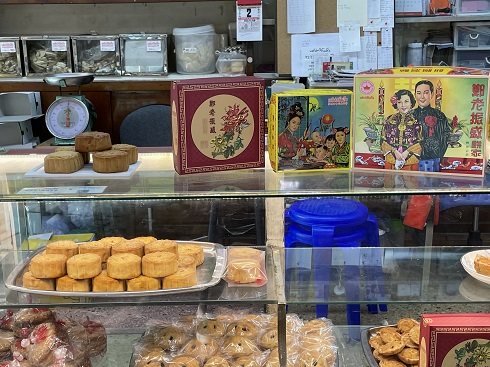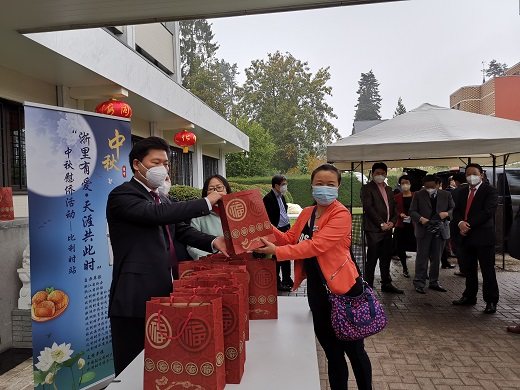The Moon Festival is one of the four largest traditional Chinese holidays that have emerged at the latest, but its influence is very large. In ancient times, during the Moon Festival, the Chinese actually tasted moon cakes and consumed alcoholic drinks made from flowers, in addition to admiring the full moon. Fortunately, these traditions have been passed down from generation to generation.
Today, on the occasion of the Moon Festival, there are many folk customs throughout the country: they worship the moon, admire the moon, and make rabbit lanterns at family gatherings. But folk customs differ slightly in different parts of the country. For example, in and around Beijing, on the occasion of the Moon Festival, people pray to the moon god. But in southern China, especially in coastal areas, it is customary to pray to the god of the sea during the lunar feast, since at this time the tide is very high.
They pray to the moon god
In Chinese culture, during the Moon Festival and the Spring Festival, the Chinese yearn for family gatherings. Since the 17th century, more and more Chinese have traveled to different countries around the world, during which some traditions have disappeared, but folk customs associated with lunar gatherings have been perfectly preserved. In addition, tasting moon cake during the Lunar Festival has become a popular custom not only in Chinese traditions but also for people of Chinese descent all over the world. A thousand years ago, during the Tang Dynasty, many Chinese traveled and settled in Japan, South Korea and neighboring Southeast Asian countries. As a result, in these places a culture of a lunar festival arose. In China, the lunar holiday is on August 15 according to the traditional calendar, but in Japan, the lunar holiday lasts from August 14 to 23, for seven days. In addition, in China, moon cake is eaten on the occasion of the Moon Festival, and this custom is completely different in Japan and South Korea. In Japan, the colored crucifix is sung, and in South Korea the cross is sung.
Although the traditions of the Moon Festival have changed in neighboring Japan and South Korea, it is very interesting that the worship of the Moon Festival has spread so well in Singapore, Malaysia, the Philippines, Indonesia and even in the United States and Australia. And even Europe.. and folk customs.
Malaysia is home to a large number of people of Chinese descent, so there are various ways to celebrate the Moon Festival. Currently, the Moon Festival has become the second most popular Chinese festival in Malaysia in addition to the Spring Break. Ma Shuai (Ma Suaj), a teacher who lives in Malaysia, is very fond of Chinese culture. said this,
– “In recent years, traditional Chinese culture has become increasingly globalized. Many foreigners are interested in traditional Chinese culture. In parallel, various Chinese associations hold a series of events. For example, on the occasion of the Lunar Festival, Cantonese living in Malaysia still pray For the Moon God to this day. I really love these traditions.”
moon cake shop in malaysia
Overseas Chinese have always played an important role in shaping the dialogue between Chinese and local cultures. Australians of Chinese descent live mostly in Adelaide, South Australia. On the occasion of the Moon Festival, a series of events are always held in local Chinese residential parks. Thanks to this, the Moon Festival is now a combined festival of local ethnic groups. The locals call the lunar feast “the holiday of the moon cake.”
Norman Schuyler, chair of the South Australian Culture Commission, said the Lunar China Festival is transforming and becoming a common festival for various ethnic groups.
“The Chinese who live in every corner of the world belong to one family. People of Chinese descent from South Australia celebrate the Lunar Festival together and get together, which is also in line with the valued judgment of the Australian public. Today, more and more Australians are getting to know each other,” said Norman Schuyler. China through lunar events.
Celebrating the Moon Festival in Europe
We know that at the end of the 80s of the last century, more and more Chinese settled in Europe, including Hungary. According to preliminary statistics, about thirty thousand Chinese still live and work in Hungary. On the occasion of the Moon Festival, the Chinese residing in Hungary also organize many events.
It is reported that the local Chinese formed various alliances, which were usually formed on the basis of their homeland, for example, the Chinese of Cantonese origin formed the Cantonese alliance, and the Chinese of Sichuan origin formed the Sichuan Alliance. In addition, local Chinese women formed a Chinese Women’s Association.
This year’s Moon Festival falls on September 21. From September 1, different associations held different cultural events one after another. On September 21, the Association of Cantonese Living in Hungary hosted an evening art show to entertain visitors with traditional Chinese cultural events. Visitors can take advantage of making moon cakes and enjoy the lion dance. In addition, Chinese children still gave artistic performances: they played traditional Chinese instruments, read Chinese poems, performed an opera about the moon.
Chinese women living in Hungary, led by the local Chinese Women’s Association, presented qipao to Chinese and Hungarian viewers. Qipao is the traditional Chinese women’s dress that best reflects the beauty of Chinese women. Mrs. Wang Qian said cheerfully:
“I registered for the Qipao show as soon as possible. This was a rare opportunity. I am happy with such events, and I think that the lunar atmosphere in Hungary is deeper than it is in Hungary.”














































